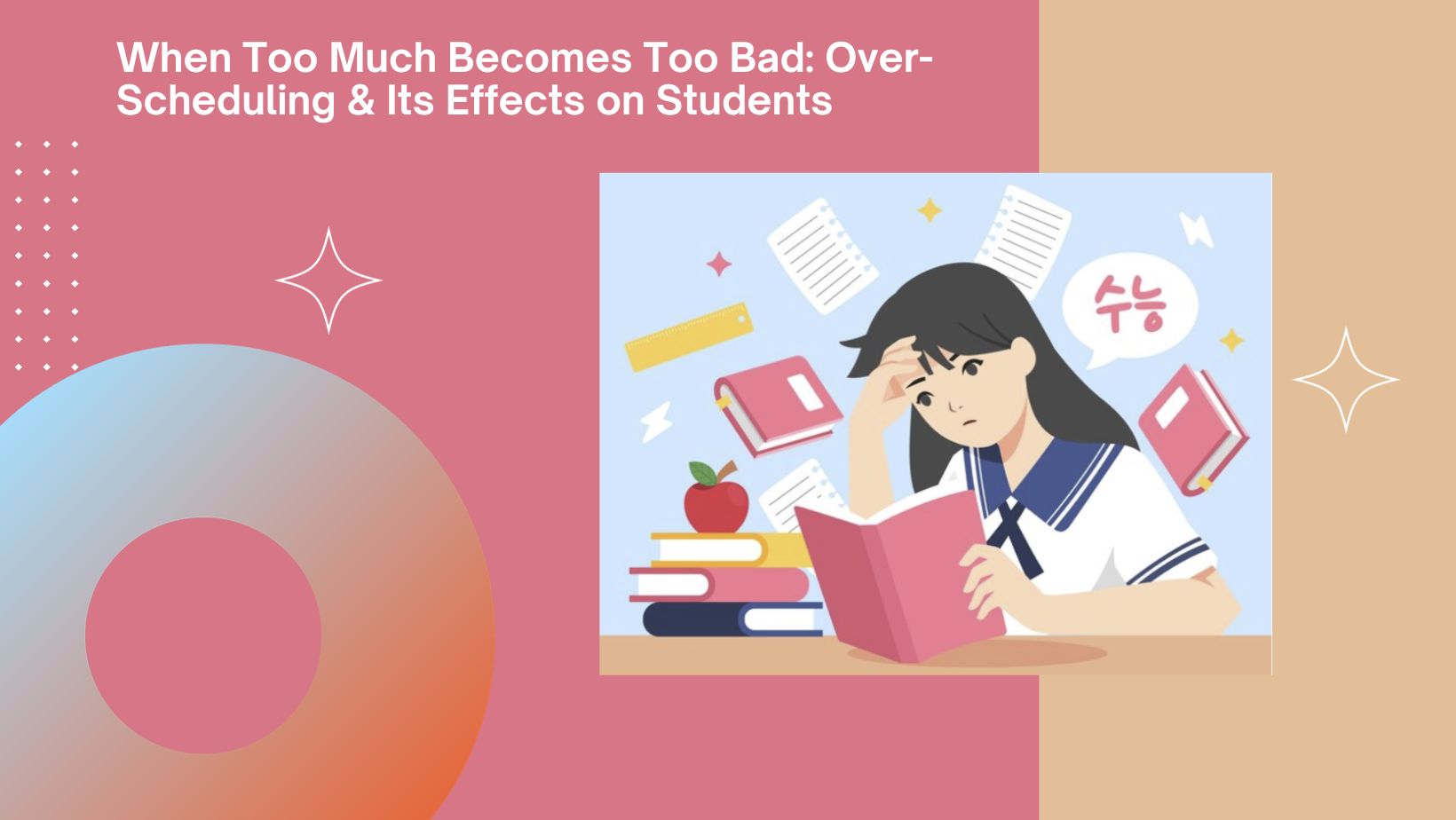

In today's fast-paced and competitive world, students often find themselves caught up in a whirlwind of activities and commitments, a phenomenon commonly known as over-scheduling.
Introduction:
In today's fast-paced and competitive world, students often find themselves caught up in a whirlwind of activities and commitments, a phenomenon commonly known as over-scheduling. While extracurricular activities and a busy routine can be enriching and beneficial, an excess of it can have detrimental effects on students' physical, emotional, and academic well-being. In this blog, we will delve into the consequences of over-scheduling and shed light on how it can negatively impact students.
Physical Exhaustion and Health Issues:
Over-scheduled students often experience physical exhaustion due to the relentless pace of their activities. The constant rushing from one activity to another, inadequate sleep, and lack of time for proper nutrition can compromise their immune systems, making them more susceptible to illnesses. Chronic stress resulting from over-scheduling can manifest as headaches, fatigue, and even more severe health issues over time.
Mental Fatigue and Emotional Burnout:
The mental toll of over-scheduling is profound. Balancing academics, extracurricular activities, and personal time can overwhelm students. They may experience mental fatigue, anxiety, and an inability to cope with the pressures of their schedules. Over time, this can lead to emotional burnout, affecting their overall mental well-being, self-esteem, and motivation to perform well academically.
Also Read: 5 Qualities to Look for in a Good Preschool or Nursery
Decline in Academic Performance:
Ironically, one of the adverse effects of over-scheduling is a decline in academic performance. When students are stretched thin across numerous activities, they have limited time for focused study and revision. The fatigue and mental exhaustion can hinder their ability to concentrate and grasp new concepts, ultimately affecting their grades and academic achievements.
Strained Relationships and Social Isolation:
Over-scheduling can strain relationships, both within and outside the family. Students may find it challenging to spend quality time with family and friends due to their hectic schedules. As a result, they may experience feelings of isolation and a lack of emotional support, which can adversely impact their social development and mental health.
Reduced Creativity and Imagination:
Over-scheduling often leaves little room for unstructured, imaginative play or relaxation. Creative outlets, such as free play, art, or daydreaming, are essential for a child's development. When a child is constantly occupied with scheduled activities, they may lose the opportunity to explore their creativity and develop their imagination.
Limited Development of Essential Life Skills:
Balancing a busy schedule often means students miss out on learning crucial life skills like time management, decision-making, and problem-solving. These skills are vital for success in adulthood, and by over-scheduling, students may not have the chance to develop them fully.
Also Read: The Best Preschools in Mumbai for Your Child
Conclusion:
While involvement in extracurricular activities is important for a well-rounded education, striking a balance and avoiding over-scheduling is equally crucial. Parents, educators, and students must collectively prioritize a healthy balance between academics, extracurriculars, and personal time. Ensuring that students have sufficient rest, downtime, and opportunities for creative expression is essential for their holistic development and long-term success. Let us strive to create an environment that fosters growth without overwhelming our young learners.